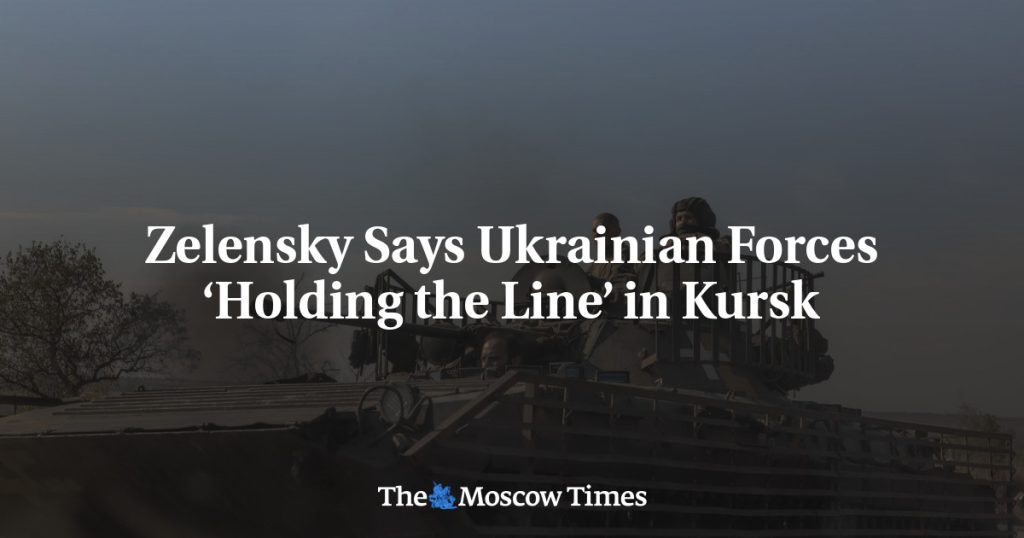The conflict between Ukraine and Russia in the Kursk region continues, with Ukrainian President Volodymyr Zelensky stating that Russian forces attempted to push back Ukrainian positions in the region. However, Ukraine remains determined to hold the line and has maintained control over swathes of the Kursk region since early August. Russia claimed to have recaptured two villages in the region earlier in the week and has expressed a commitment to pushing Ukrainian forces out of its territory. The situation remains tense as both sides continue to engage in military actions in the area.
Ukraine’s offensive in the Kursk region is aimed at creating a buffer zone to prevent shelling of its border areas by Russian forces. Zelensky also acknowledged the challenging situation faced by Ukrainian forces in the eastern Donetsk region and southern Zaporizhzhia region. Recent Russian attacks resulted in the deaths of two individuals in the eastern Donetsk region, including a 19-year-old in a civilian car and an 84-year-old pensioner. The conflict has taken a toll on both military personnel and civilians in the affected regions, leading to concerns about the escalation of violence and the impact on civilian populations.
The ongoing conflict between Ukraine and Russia has drawn international attention and condemnation, with calls for a peaceful resolution to the crisis. The United Nations and other international organizations have urged both sides to cease hostilities and engage in dialogue to reach a peaceful solution. The situation in the Kursk region, as well as other areas of conflict, remains fluid and unpredictable, raising concerns about the potential for further violence and destabilization in the region. The humanitarian impact of the conflict is also a growing concern, with reports of civilian casualties and displacement adding to the urgency of finding a resolution.
The designation of The Moscow Times as an “undesirable” organization by Russia’s Prosecutor General’s Office highlights the challenges faced by independent journalism in the country. The crackdown on media outlets and journalists critical of the government is a troubling development that threatens press freedom and the ability to report truthfully on issues of public interest. The Moscow Times has been labeled as a “foreign agent” and faces prosecution for its reporting, despite its efforts to provide accurate and unbiased coverage of events in Russia. The support of readers and the international community is crucial in defending open and independent journalism in the face of repression.
The Moscow Times is committed to continuing its work despite the challenges posed by Russian authorities’ attempts to silence independent voices in the media. The journalists at The Moscow Times refuse to be intimidated and remain dedicated to providing accurate, unbiased reporting on Russia and its actions. However, the support of readers is essential in sustaining the publication’s operations and ensuring that independent journalism can continue to thrive in a challenging environment. By standing with The Moscow Times and supporting its work, readers can contribute to the defense of press freedom and the promotion of truth and transparency in journalism. The importance of independent media in holding governments accountable and informing the public cannot be understated, particularly in times of crisis and conflict.


